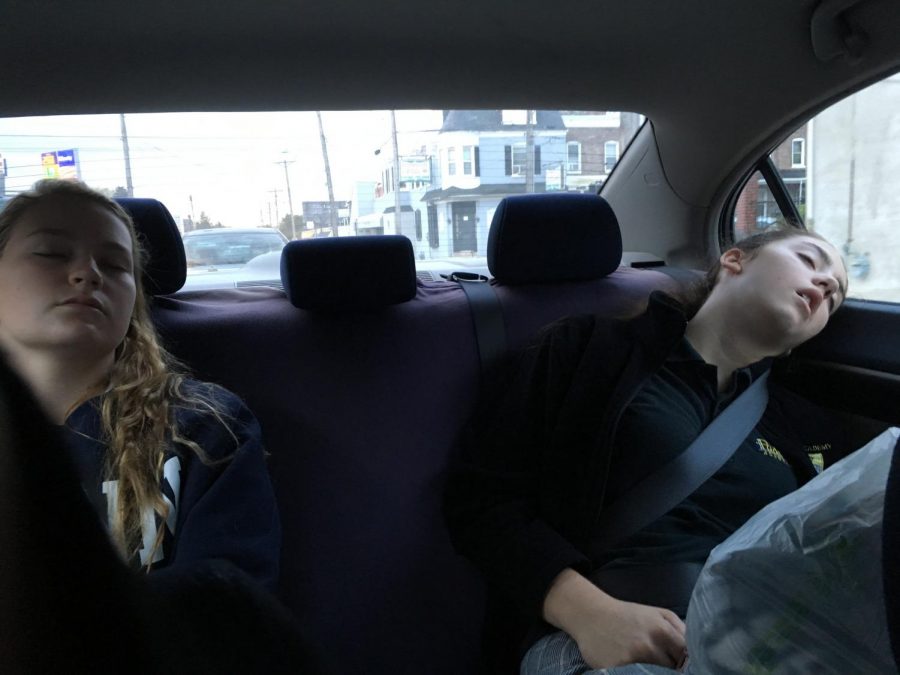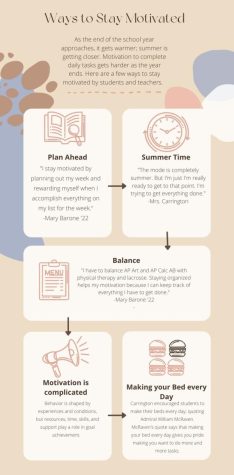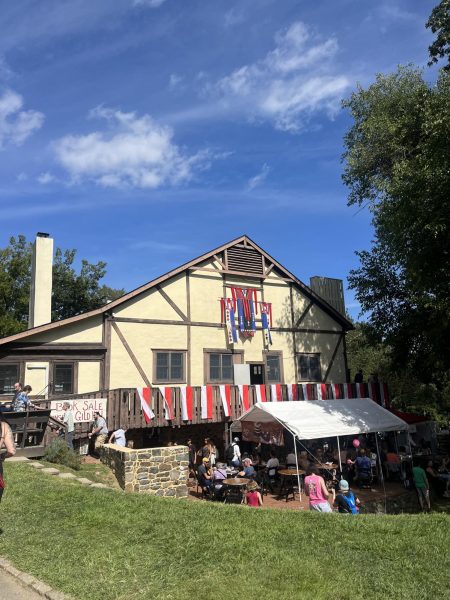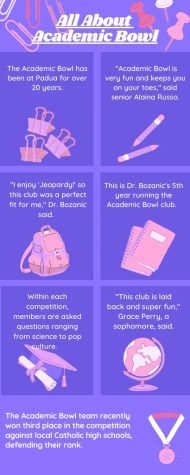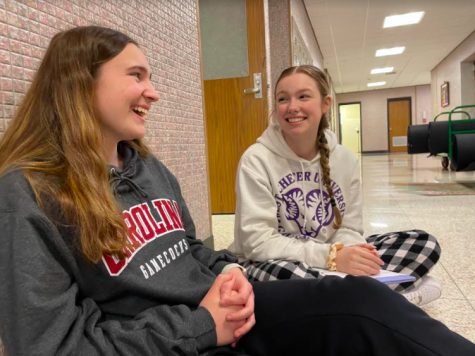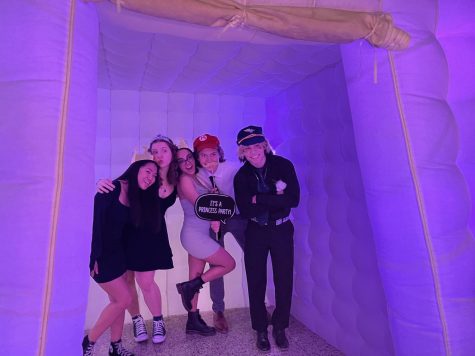Do Students Get Enough Sleep?
Juniors Tess Lunetta and Jess Molen sleep on the way to school. Many students find an early start to the day difficult after minimal sleep.
Madalyn Lambe, a junior, blearily recounts how exhausted she felt after getting two and a half hours of sleep the night before. “I couldn’t concentrate after that, I dissociated a few times… I was just miserable all day,” she said. Noticeable dark circles under her eyes weigh down her face.
Averaging six hours of sleep a night, Lambe is one of many Padua students who come to school tired on a regular basis.
“I know that sleep improves your mental health and improves your ability to function and stuff, REM sleep, you have to make up for that. I know it’s important for growth,” she said. So why isn’t Lambe getting enough sleep?
SLEEPLESS CULTURE
“It’s really hard to find time to get sleep and do homework. I put other things above sleep because I feel like it’s more important for me to get a good grade, keep my grades up, be in extracurriculars, than to get sleep,” Lambe said. “It feels like that’s what I am being told to do.”
Not all students run on minimal amounts of sleep. Alexis McKeown, a junior, gets an average of eight and a half hours of sleep a night. “I like my schedule,” she said. “It helps you do better in school and be more productive and active.”
McKeown concurs, however, that many of her peers do not sleep enough. “A lot of people don’t go to bed until 12, one, two in the morning because they just have so much work,” she said. “And they’re just stressing out and they never sleep.”
Lauren Gempp, a senior, stressed that there often seems to be little time for sleep, even when she knows she needs it. “Especially in the fall with, like, college applications and homework, it’s trying to, like, manage my time equally and have enough energy for everything,” she said.
“I think from the people that I have talked to, it seems like everybody is a little sleep-deprived. I don’t know if that’s throughout the entire school, but at least with seniors I’ve talked to, they get very little sleep.”
WHY IT’S IMPORTANT
“I think that not getting enough sleep really is a mental health issue, but it’s also a health issue,” said Ms. Tabolt, who often has sleep-deprived students coming into her office. “Sleep plays such a huge role, you know, not only your brain’s ability to function and your ability to remember things and be able to be a good student, but if you’re not getting enough sleep, it also can weaken your immune system.”
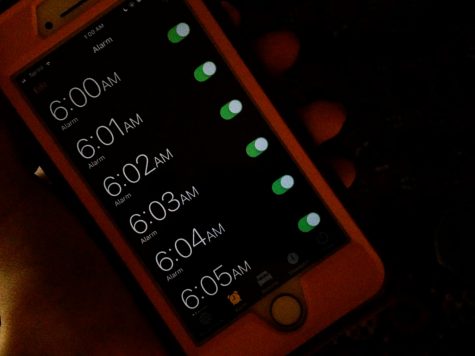
Not getting enough sleep can result in physical illness and increased levels of stress. Many students come into guidance fatigued and stressed.
She emphasized that not getting enough sleep can lead to physical illness in students. “Not only are they tired but maybe they’re missing school now, too.”
“If they’re not sleeping, then physically, it just drains you,” added Mr. Lang. “In my opinion, they identify that as stress. So they might feel overstressed, but it might be because they’re not sleeping enough.”
Mr. McAteer, who teaches about the effects and importance of sleep in his AP Psychology class, discussed the physical importance of sleep.
“When you are fatigued, distances look a lot further than they really are, objects appear heavier than they actually are, and hills look steeper,” he said. “If you walk in school on a Monday and you don’t have enough sleep from the weekend and you have a checklist of five items… that’s going to look more difficult, steeper, harder to accomplish, in which case they might just say, ‘I’m not going to do it.’” When you are fatigued, distances look a lot further than they really are. — Mr. McAteer
Scientifically, he said, the glial cells that are meant to help your body reset after a day of neurotransmissions cannot function as well on little sleep. “It’s kind of like metaphorical trash is piling up in your brain… not to say that every student here has a head filled with trash.”
WHAT CAN BE DONE
Many students wish they could create better sleeping habits, but are not sure how to go about it. Gempp said that Padua is already stepping in the right direction. “Ms. Keefe’s prayers are really good, taking care of yourself and taking care of your body first,” she said. “I think that if students really step back and think about it, she’s telling us that that is something that we overlook.”
McAteer agrees. He’s observed an increase of understanding, in regards to sleep. “It’s starting to become less than a badge of honor,” he said. “I think you guys [students] are giving yourself more of a break.”
“I’m tired most of the time, I sometimes fall asleep in class, and the reason I stay up so late is that I’m doing schoolwork,” said sophomore Tatiana Mendez. “I wish I got more sleep because I feel I would be a genuinely happier person.”
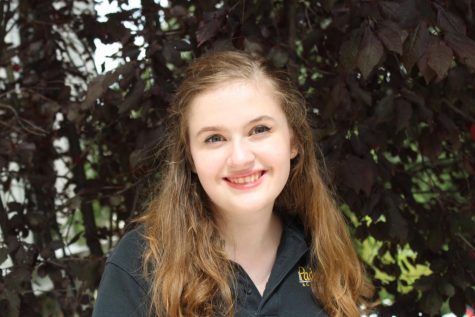
Stella White is a senior at Padua Academy. Born in Delaware, with a wonderful British accent, Stella has spent a lot of her life growing up in England....
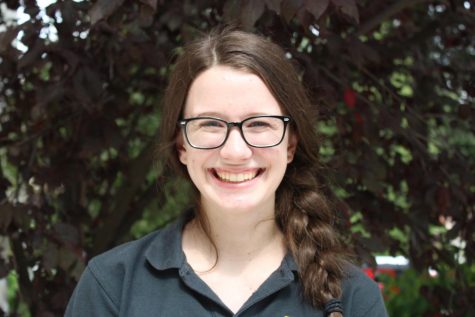
Brynna is a junior at Padua Academy. She loves writing, acting, dancing, and watching TV. Her favorite things to watch are Stranger Things, Sherlock, The...

